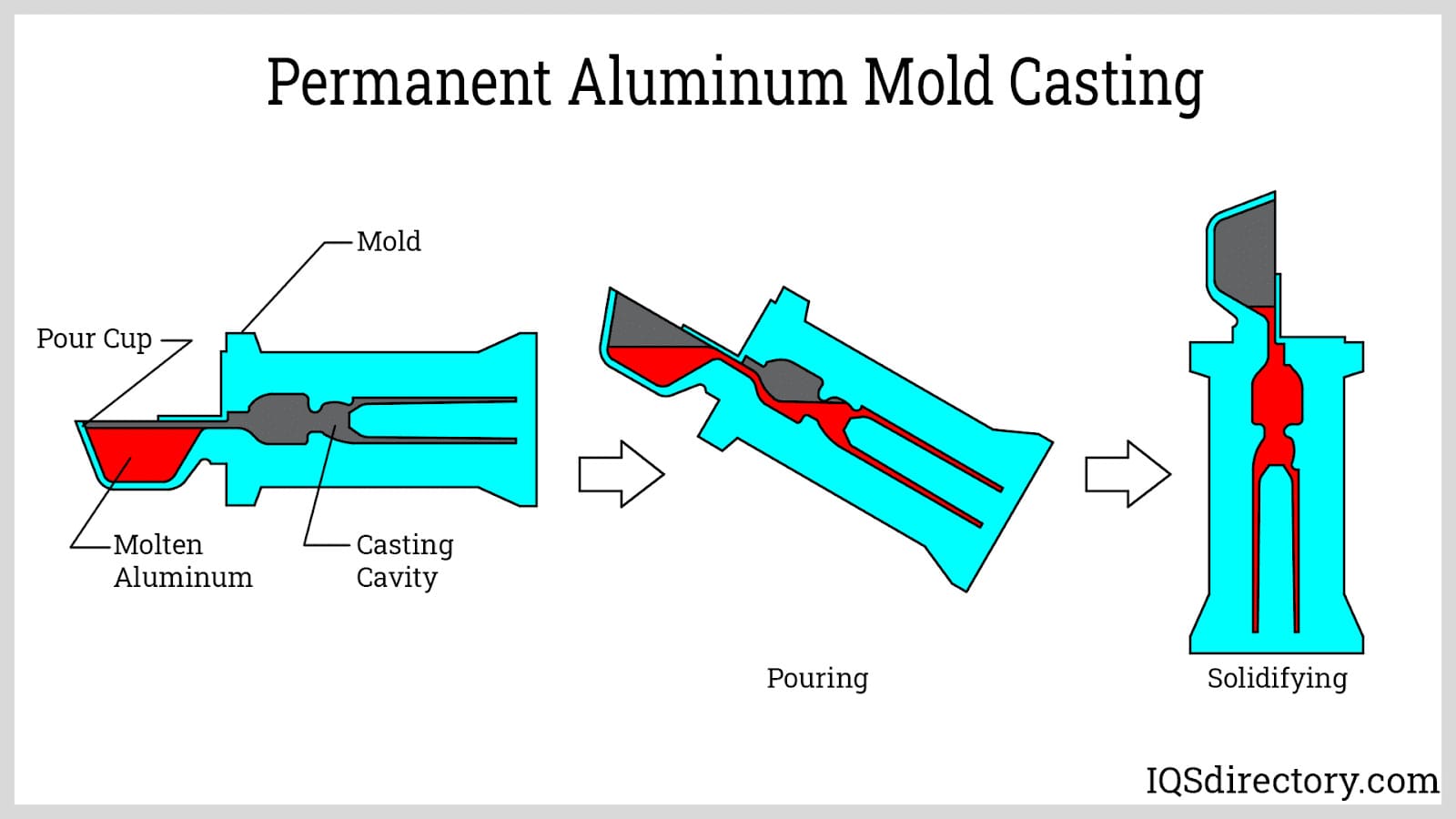The Essential Usages of Aluminum Foundry in Numerous Industries and Their Impact
Aluminum foundries function as an important source within various sectors. Their durable and lightweight products considerably enhance efficiency in auto, aerospace, building and construction, and electronic devices fields. As each sector leverages aluminum's one-of-a-kind residential or commercial properties, they also add to sustainability initiatives. This multifaceted impact prompts a deeper expedition of just how Aluminum formed these markets. What specific technologies and advantages occur from its use?
Automotive Market Applications
The vehicle sector progressively depends on Aluminum Foundry applications to boost vehicle efficiency and effectiveness. Light weight aluminum's lightweight nature adds considerably to fuel economic situation, making it a preferred option for producers intending to reduce discharges and boost overall automobile dynamics. Elements such as engine blocks, transmission housings, and wheels are frequently generated through Aluminum casting processes, permitting for intricate layouts that fulfill strenuous security and performance requirements.

Aerospace Innovations

Moreover, using aerospace-grade Aluminum alloys boosts resistance to rust and exhaustion, necessary for the requiring atmospheres airplane face. Advancements in additive manufacturing likewise enable rapid prototyping and modification of elements, decreasing preparations and prices.
Building and construction and Facilities
While the building and framework markets continue to develop, Aluminum shops are significantly recognized for their payments to modern building methods. Aluminum's light-weight nature and high strength make it a suitable product for different structural applications. Factories provide components such as light beams, frameworks, and facades that improve the sturdiness and longevity of buildings and infrastructure jobs.
Aluminum's deterioration resistance plays an essential role in extending the life-span of frameworks revealed to rough ecological conditions. The energy efficiency of Aluminum products likewise aligns with lasting structure campaigns, contributing to reduced power usage in construction. Additionally, ingenious casting methods have actually expanded the style opportunities, permitting architects and designers to create aesthetically pleasing yet useful structures.
Electronic devices Production
Aluminum foundries play a considerable function in the electronics making sector, where the need for light-weight and thermally conductive materials is official site critical. Metal Castings. Elements such as warm sinks, coverings, and braces are usually produced making use recommended you read of Aluminum because of its excellent thermal residential or commercial properties and capacity to dissipate heat successfully. This is important in electronic devices, where overheating can cause failure and reduced efficiency
The convenience of Aluminum allows for complicated styles and specific machining, which are crucial in modern electronic devices. Furthermore, aluminum's non-magnetic homes make it suitable for applications in delicate electronic tools, lessening interference. Moreover, aluminum's resistance to rust enhances the longevity of digital components, making sure long life and reliability.
Sustainability and Recycling Efforts
Given the raising emphasis on environmental obligation, the Aluminum Foundry sector has actually made considerable strides in sustainability and recycling initiatives. Aluminum is naturally recyclable, enabling factories to redeem and recycle material with minimal power expense contrasted to key manufacturing. This closed-loop recycling procedure not just decreases waste yet also decreases greenhouse gas exhausts, adding to a more lasting manufacturing model.
Lots of foundries are taking on energy-efficient technologies, including eco-friendly power sources, to power their operations. This shift not just decreases reliance on nonrenewable fuel sources but likewise boosts overall functional performance
Market cooperations are further promoting lasting techniques, such as sharing ideal techniques and developing cutting-edge recycling techniques. By focusing on these initiatives, the Aluminum Foundry industry is placing itself as a leader in lasting Full Article production, lining up with global targets for sustainability while meeting the needs of numerous markets.

Often Asked Inquiries
What Are the Key Benefits of Making Use Of Aluminum in Foundry Processes?
The main benefits of utilizing Aluminum in Foundry processes include its light-weight nature, outstanding rust resistance, high thermal and electrical conductivity, and versatility, allowing for detailed designs and reliable recycling, inevitably boosting total manufacturing effectiveness and minimizing costs. - Aluminum Foundry
Just How Does Aluminum Foundry Impact Item Lifecycle Administration?
Aluminum Foundry substantially boosts product lifecycle management by allowing effective product use, minimizing waste, and helping with recycling. Its lightweight properties enhance transportation performance, while durability prolongs product life-span, ultimately adding to sustainability and cost-effectiveness in production.
Are There Certain Obstacles in Aluminum Foundry Production?
Particular challenges in Aluminum Foundry production include managing temperature level control, guaranteeing material quality, lessening waste, and adapting to fluctuating market needs. These variables can affect efficiency, cost, and overall competition within the sector.
What Precaution Are Necessary in Aluminum Foundry Workflow?
Essential precaution in Aluminum Foundry procedures include individual safety tools, appropriate air flow, routine equipment maintenance, hazard interaction, and emergency response training. Implementing these techniques assurances employee safety and security and lessens dangers connected with high-temperature metal processing.
Exactly how Does the Price of Aluminum Contrast to Other Metals in Foundry Use?
The price of Aluminum is typically less than that of steels like copper and titanium, making it an economical selection for several Foundry applications. This affordability adds to its prevalent use across various markets.
Aluminum shops serve as a vital resource within many sectors. The automotive industry increasingly depends on Aluminum Foundry applications to boost vehicle performance and performance. The material's recyclability also aligns with the industry's push towards sustainability, as recycled Aluminum calls for considerably much less power to process compared to primary light weight aluminum. Aluminum factories play a significant duty in the electronics making sector, where the need for lightweight and thermally conductive materials is paramount. Given the raising focus on ecological obligation, the Aluminum Foundry market has made substantial strides in sustainability and recycling efforts.